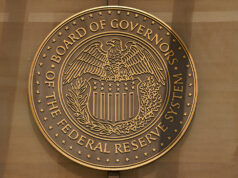THE PESO strengthened versus the dollar on the last trading day of 2019 as remittance inflows continued to surge for the holidays and amid risk-on sentiment due to positive news on the US-China trade deal.
The local unit closed at P50.635 versus the greenback on Friday, climbing 18.6 centavos from its finish of P50.821 per dollar on Thursday, according to data published on the Bankers Association of the Philippines’ website.
Week-on-week, it appreciated by 18 centavos from its close of P50.815 on Dec. 20.
The local unit also rose P1.88 from its Jan. 2 close of P52.515 against the dollar. Year-on-year, the peso strengthened by P1.945 from its Dec. 28, 2018 finish of P52.58 against the greenback.
On Friday, the peso opened the session at P50.78 against the greenback. Its weakest showing was at P50.94 while its intraday best versus the dollar was at its close of P50.635.
Dollars traded climbed to $1.33 billion from $1.076 billion on Thursday.
Traders attributed the peso’s movement to remittance flows and developments in the US-China trade negotiations.
“The peso appreciated today from increased remittances and some dollar unloading mainly due to the Philippine holiday season,” a trader said in an email on Friday.
“The peso was stronger on the back of the risk-on sentiments on the US-China trade deal and the remittance flows for the weekend,” another trader said in a phone call.
Reuters reported that US soybean futures inched up in early trade on Friday, hovering below an 18-month high hit in the previous session on the back of bullish sentiment that Beijing, which is the world’s largest market for soybeans, will beef up soy purchases following a recently struck trade deal.
The world’s two most powerful economies struck a “phase one” deal that includes a commitment by Beijing to amp up buying US agricultural products.
China’s commerce ministry said on Thursday that Beijing was in close contact with Washington, adding that both sides were still going through necessary procedures before the signing of the deal. — L.W.T. Noble with Reuters



